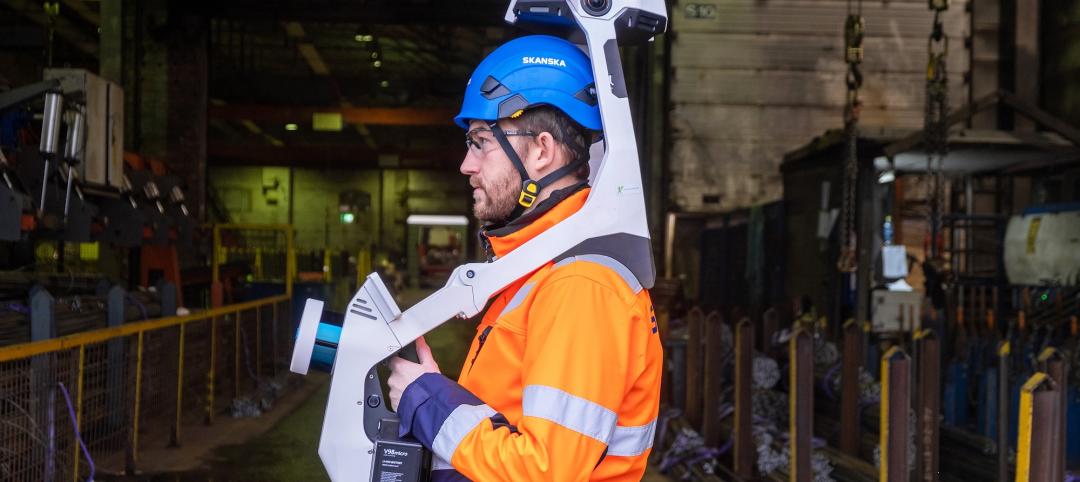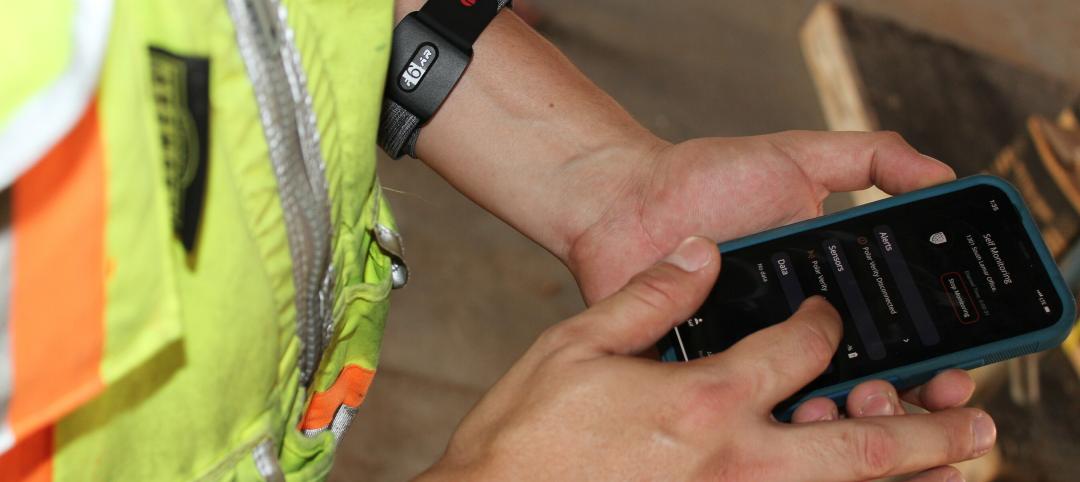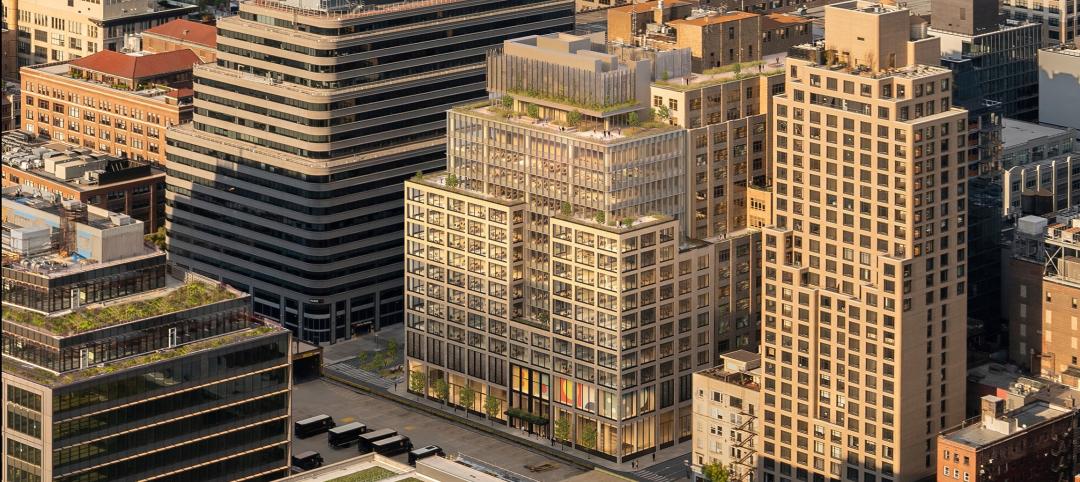With the rise of the on-demand economy, the need for parking lots and garages to be a space for nothing more than storing vehicles is beginning to wane. But instead of trying to phase parking lots and garages out completely, REEF Technology, the largest parking network in North America, has unveiled plans to adapt these spaces into tech-forward, urban mobility hubs to deliver on-demand goods and services.
The company, which is supported by SoftBank Vision Fund and Mubadala Investment Company, plans to leverage the high-density, high-activity location of its parking lots and parking structures to create a robust ecosystem to connect people to the goods and services they want.
See Also: Earthquake response system takes the guesswork out of seismic safety
A key component of these logistics hubs is the last-block, delivery-only REEF Kitchens. Restaurants can partner with REEF Kitchens to open and expand their businesses while also providing more food options and faster delivery at a lower cost to customers. The centralized location of the REEF hubs will help extend the reach of restaurants without burdening the restaurants’ main kitchen. Additionally, REEF has partnered with delivery services such as Uber Eats, DoorDash, Postmates, and Grubhub, with couriers on site so deliveries will reach customers more quickly and fresher than before.
 A key component of REEF’s urban mobility hub is REEF Kitchens, delivery-only kitchens that can be leased by local restaurants to expand their reach. The hubs will offer a variety of services. REEF Technology.
A key component of REEF’s urban mobility hub is REEF Kitchens, delivery-only kitchens that can be leased by local restaurants to expand their reach. The hubs will offer a variety of services. REEF Technology.
The kitchens are housed in proprietary containers capable of accommodating one to five restaurant brands or concepts. Restaurants can run operations directly on contract with REEF to stage and prepare delivery-only menu items. REEF Kitchens have successfully launched in Miami and London, with plans to open several hundred more in North America and the U.K.
REEF has also partnered with electric bike and scooter rental companies, on-demand aviation businesses, and peer-to-peer car rentals. Rideshare car buffering zones, where drivers can access services like car detailing and maintenance, will exist within the hub.
REEF claims that its urban mobility hub concept will future-proof its parking structures, while also addressing many of the major obstacles all cities face: congestion, pollution, high costs for businesses to expand, and residents’ growing desire for their goods and services to be delivered quickly.
Not bad for something that, in the past, was just a flat piece of asphalt or concrete for housing vehicles.
Related Stories
3D Printing | Sep 13, 2024
Swiss researchers develop robotic additive manufacturing method that uses earth-based materials—and not cement
Researchers at ETH Zurich, a university in Switzerland, have developed a new robotic additive manufacturing method to help make the construction industry more sustainable. Unlike concrete 3D printing, the process does not require cement.
Smart Buildings | Jul 25, 2024
A Swiss startup devises an intelligent photovoltaic façade that tracks and moves with the sun
Zurich Soft Robotics says Solskin can reduce building energy consumption by up to 80% while producing up to 40% more electricity than comparable façade systems.
Great Solutions | Jul 23, 2024
41 Great Solutions for architects, engineers, and contractors
AI ChatBots, ambient computing, floating MRIs, low-carbon cement, sunshine on demand, next-generation top-down construction. These and 35 other innovations make up our 2024 Great Solutions Report, which highlights fresh ideas and innovations from leading architecture, engineering, and construction firms.
Building Technology | Jun 18, 2024
Could ‘smart’ building facades heat and cool buildings?
A promising research project looks at the possibilities for thermoelectric systems to thermally condition buildings, writes Mahsa Farid Mohajer, Sustainable Building Analyst with Stantec.
75 Top Building Products | Apr 22, 2024
Enter today! BD+C's 75 Top Building Products for 2024
BD+C editors are now accepting submissions for the annual 75 Top Building Products awards. The winners will be featured in the November/December 2024 issue of Building Design+Construction.
AEC Tech | Feb 20, 2024
AI for construction: What kind of tool can artificial intelligence become for AEC teams?
Avoiding the hype and gathering good data are half the battle toward making artificial intelligence tools useful for performing design, operational, and jobsite tasks.
Sustainability | Nov 1, 2023
Researchers create building air leakage detection system using a camera in real time
Researchers at the U.S. Department of Energy’s Oak Ridge National Laboratory have developed a system that uses a camera to detect air leakage from buildings in real time.
Resiliency | Aug 7, 2023
Creative ways cities are seeking to beat urban heat gain
As temperatures in many areas hit record highs this summer, cities around the world are turning to creative solutions to cope with the heat. Here are several creative ways cities are seeking to beat urban heat gain.
AEC Innovators | Jun 15, 2023
Rogers-O'Brien Construction pilots wearables to reduce heat-related injuries on jobsites
Rogers-O'Brien Construction (RO) has launched a pilot program utilizing SafeGuard, a safety-as-a-service platform for real-time health and safety risk assessment. Non-invasive wearables connected to SafeGuard continuously monitor personnel to prevent heat exhaustion on jobsites, reducing the risk of related injuries. RO is the first general contractor to pilot this program.
Office Buildings | May 15, 2023
Sixteen-story office tower will use 40% less energy than an average NYC office building
This month marks the completion of a new 16-story office tower that is being promoted as New York City’s most sustainable office structure. That boast is backed by an innovative HVAC system that features geothermal wells, dedicated outdoor air system (DOAS) units, radiant heating and cooling, and a sophisticated control system to ensure that the elements work optimally together.

















